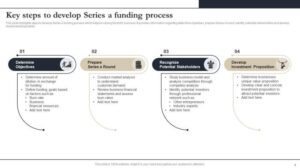
Public speaking confidence is more than just a buzzword; it’s a vital skill that can open doors to countless opportunities. Whether you’re addressing a small team or a large audience, the ability to communicate effectively can set you apart in both personal and professional realms.
In this discussion, we’ll explore essential techniques for building your public speaking confidence, ways to overcome anxiety, and how these skills are intertwined with innovation and business success. From mastering body language to structuring impactful speeches, we’ll provide insights that can transform your speaking abilities.
Public Speaking Techniques
Public speaking can be daunting, but with the right techniques, anyone can build the confidence needed to deliver powerful presentations. Understanding effective methods and body language can significantly enhance a speaker’s presence and impact.
Effective Techniques for Building Confidence
One of the most effective ways to build public speaking confidence is through preparation and practice. Familiarizing yourself with the content of your speech allows you to speak more freely and confidently. Consider the following techniques:
- Rehearsing Out Loud: Practice your speech multiple times in front of a mirror or record yourself to get comfortable with your delivery.
- Visualizing Success: Use visualization techniques to imagine yourself speaking confidently in front of an audience.
- Starting Small: Begin with smaller groups before progressing to larger audiences to build your confidence gradually.
Body Language to Enhance Presence
Effective body language can significantly enhance your presence as a speaker. Here are some key elements:
- Eye Contact: Maintain eye contact with your audience to create a connection and convey confidence.
- Open Posture: Stand tall with an open posture to appear more approachable and confident.
- Gestures: Use hand gestures to emphasize points and convey enthusiasm, but avoid overdoing it.
Structuring a Speech for Maximum Impact
A well-structured speech can capture and maintain the audience’s attention. Here’s a simple framework to follow:
- Introduction: Start with a hook to engage your audience and state your main points.
- Body: Divide the body into clear sections, each addressing a key point with supporting evidence.
- Conclusion: Summarize your main points and leave the audience with a strong closing statement or call to action.
Overcoming Fear in Public Speaking
Fear of public speaking is common, but it can be managed with the right strategies. Identifying and addressing these fears is crucial for becoming a confident speaker.
Identifying and Addressing Fears
Understanding your specific fears related to public speaking can help you tackle them effectively. Common fears include fear of judgment and fear of forgetting words. Address these fears by:
- Recognizing Triggers: Reflect on what specifically makes you anxious and write it down.
- Positive Affirmations: Use affirmations to boost self-esteem and reduce anxiety before speaking.
Mental Preparation Strategies

Mental preparation is essential for calming nerves before a presentation. Techniques include:
- Deep Breathing: Practice deep breathing exercises to relax and focus your mind.
- Positive Visualization: Visualize a successful presentation to increase confidence levels.
The Role of Practice in Reducing Anxiety
Practice is a powerful tool for reducing anxiety. Regular rehearsals help familiarize you with the material and build confidence. Consider:
- Mock Presentations: Conduct mock presentations in front of friends or family for constructive feedback.
- Gradual Exposure: Gradually increase the size of your audience as you become more comfortable.
Business Innovation and Public Speaking
Public speaking plays a crucial role in fostering business innovation. Effective communication can help generate and share innovative ideas within teams.
The Connection Between Public Speaking Skills and Business Innovation
Strong public speaking skills facilitate the sharing of innovative ideas. When team members communicate effectively, they are more likely to contribute creatively. Consider the following:
- Encourages Collaboration: Clear communication fosters collaboration, leading to innovative solutions.
- Increases Engagement: Engaging presentations motivate team members to participate and share ideas.
Effective Communication and Innovative Ideas
Communicating effectively can enhance brainstorming sessions and idea sharing. To create an environment that fosters innovation:
- Invite Input: Encourage team members to voice their ideas without fear of criticism.
- Use Visual Aids: Presenting ideas visually can enhance understanding and retention.
Framework for Presenting Innovative Concepts
When presenting innovative concepts to stakeholders, follow this framework:
- Clearly Define the Problem: Start by outlining the problem your innovation addresses.
- Present the Solution: Clearly articulate your innovative idea and its benefits.
- Call to Action: End with a strong call to action that encourages stakeholders to support the idea.
International Business and Communication
Public speaking is vital in international business settings, where effective communication can bridge cultural gaps and foster understanding.
The Importance of Public Speaking in International Business
In international business, public speaking skills can facilitate smoother communication across cultures. Understanding the audience’s cultural context is essential for effective messaging. Key considerations include:
- Clarity and Brevity: Use clear and concise language to avoid misunderstandings.
- Respect Cultural Nuances: Be aware of cultural differences that may affect communication styles.
Adapting Communication Styles
Adapting your communication style is crucial when addressing diverse audiences. Here are some tips:
- Research Cultural Norms: Familiarize yourself with the cultural norms of your audience before presenting.
- Adjust Tone and Formality: Tailor your tone and level of formality to suit the audience’s expectations.
Cultural Awareness and Public Speaking Effectiveness
Cultural awareness enhances the effectiveness of public speaking. To improve your skills:
- Seek Feedback: Engage with colleagues from different backgrounds to gain insights on your presentation style.
- Participate in Cultural Training: Consider training sessions that focus on cross-cultural communication.
Business Interviews and Presentation Skills
Strong public speaking skills can significantly enhance performance in job interviews, allowing candidates to present themselves confidently.
Improving Interview Performance
Confident public speaking can set a candidate apart in job interviews. Here are strategies to improve performance:
- Practice Common Questions: Anticipate common interview questions and rehearse your responses.
- Show Enthusiasm: Use your voice and body language to convey enthusiasm about the role.
Presenting Oneself Confidently
When presenting yourself in an interview, consider these techniques:
- Dress Professionally: Your attire can impact how you are perceived; dress appropriately for the industry.
- Maintain Good Posture: Stand tall and maintain eye contact to project confidence.
Common Interview Questions and Effective Responses
Being prepared for common interview questions can boost your confidence. Here’s a list of typical questions:
- Tell me about yourself.
- What are your strengths and weaknesses?
- Why do you want to work here?
For each question, prepare concise and relevant responses that highlight your skills and experiences.
Marketing Direct and Public Speaking
Public speaking is an essential element of direct marketing strategies, helping to engage and persuade potential customers.
Role of Public Speaking in Direct Marketing
In direct marketing, effective communication can significantly influence customer decisions. Consider how public speaking enhances marketing efforts:
- Engaging Presentations: Captivating presentations can make marketing messages more memorable.
- Building Trust: Good public speaking fosters credibility and trust with the audience.
Crafting Persuasive Marketing Presentations
To create effective marketing presentations, follow these guidelines:
- Know Your Audience: Tailor your message to address the specific needs and interests of your audience.
- Utilize Storytelling: Use storytelling techniques to create emotional connections and drive engagement.
Impact of Storytelling in Marketing Communications
Storytelling can significantly enhance marketing communications. It allows marketers to convey messages in an engaging and relatable manner. Consider the following:
- Make it Relatable: Share stories that resonate with the audience’s experiences.
- Highlight Benefits: Focus on how your product or service solves customer problems through storytelling.
Business Networking and Communication
Public speaking plays a pivotal role in networking events, where effective communication can lead to valuable connections.
Importance of Public Speaking in Networking
Strong public speaking skills are essential for making lasting impressions during networking events. Consider the importance of these skills:
- First Impressions Matter: Clear and confident communication creates a positive first impression.
- Facilitates Connections: Good communication helps initiate conversations and build rapport.
Methods for Initiating Conversations
To effectively start conversations at networking events:
- Prepare an Elevator Pitch: Have a concise introduction ready that highlights your professional background.
- Ask Open-Ended Questions: Engage others by asking questions that encourage discussion.
Examples of Elevator Pitches

Elevator pitches are brief and compelling introductions. Here are a few examples:
- “Hi, I’m [Your Name], a marketing specialist focused on digital strategies for small businesses.”
- “Hello, I’m [Your Name]. I help companies streamline operations through innovative software solutions.”
These pitches should convey your expertise and invite further conversation.
Business Outsourcing and Communication
Clear communication is essential in outsourcing scenarios to ensure effective collaboration and understanding.
The Need for Clear Communication in Outsourcing
In outsourcing, effective communication helps prevent misunderstandings. Key aspects include:
- Setting Expectations: Clearly define project goals and deliverables to all parties involved.
- Regular Updates: Maintain regular communication to ensure projects are on track.
Strategies for Presenting Outsourcing Proposals
When presenting outsourcing proposals, focus on clarity and relevance:
- Artikel Benefits: Clearly highlight the advantages of outsourcing the specific project.
- Address Concerns: Be prepared to address any potential concerns the audience may have about outsourcing.
Building Confidence When Discussing Outsourcing Options
To build confidence in discussions:
- Know Your Material: Understand the details of your proposal inside and out.
- Practice Active Listening: Engage with your audience’s questions and concerns to build rapport.
Business Presentation Skills
Successful business presentations require a combination of planning, practice, and effective delivery techniques.
Essential Elements of a Successful Business Presentation
Key elements contribute to the success of a business presentation:
- Clear Objectives: Start with clear objectives to guide your presentation.
- Audience Engagement: Engage the audience with interactive elements such as Q&A sessions.
Use of Visual Aids
Visual aids can enhance understanding and retention. Consider these tips:
- Keep Slides Simple: Use minimal text and clear visuals to support your message.
- Use Charts and Graphs: Incorporate charts and graphs to illustrate key points effectively.
Checklist for Preparing and Delivering Presentations
Organize your preparation with a checklist:
- Research your topic thoroughly.
- Prepare and rehearse your presentation.
- Gather necessary visual aids.
- Arrive early to set up and test equipment.
Business Productivity and Effective Speaking
Public speaking skills are key contributors to overall business productivity, facilitating clear communication and collaboration.
Contribution of Public Speaking Skills to Productivity
Effective speaking skills improve workplace communication, leading to increased productivity. Consider how these skills enhance operations:
- Reduces Miscommunication: Clear communication minimizes misunderstandings among team members.
- Enhances Collaboration: Effective speaking fosters a collaborative environment where ideas can flow freely.
Techniques for Efficient Team Communication
To communicate efficiently in teams, consider these techniques:
- Establish Clear Guidelines: Set clear communication guidelines to streamline information sharing.
- Encourage Feedback: Foster an environment where team members feel comfortable providing feedback.
Impact of Effective Communication on Project Management
Effective communication is essential for successful project management. Key aspects include:
- Regular Updates: Keep all stakeholders informed with regular progress updates.
- Clear Roles: Ensure everyone understands their roles and responsibilities within the project.
Restaurant Industry and Public Speaking
Public speaking skills can greatly benefit those in the restaurant industry, enhancing customer interactions and staff training.
Benefits of Public Speaking Skills in the Restaurant Industry
Effective communication is vital in the restaurant industry. Consider the benefits:
- Improved Customer Relations: Staff with strong speaking skills can engage customers more effectively.
- Enhanced Team Training: Good communication aids in training staff to deliver high-quality service.
Effective Presentation Techniques for Menu Descriptions
When describing menu items, consider these techniques:
- Use Descriptive Language: Use appealing descriptions that highlight flavors and ingredients.
- Engage the Senses: Encourage customers to visualize the experience of enjoying the dish.
Strategies for Training Staff to Communicate Confidently
To train staff effectively:
- Role-Playing: Use role-playing exercises to practice customer interactions.
- Provide Feedback: Offer constructive feedback to help staff improve their communication skills.
Resumes and Cover Letters
Showcasing public speaking skills in resumes and cover letters can help candidates stand out in a competitive job market.
Showcasing Public Speaking Skills
Highlighting your public speaking abilities can enhance your resume. Consider these approaches:
- Include Relevant Experiences: Mention any public speaking engagements or training in your experience section.
- Use Action Verbs: Use strong action verbs to describe your speaking roles, such as “presented” or “facilitated.”
Examples of Phrases Emphasizing Communication Abilities
Incorporate these phrases into your resume or cover letter:
- “Demonstrated excellent public speaking skills through various presentations and workshops.”
- “Effectively communicated complex ideas to diverse audiences in engaging ways.”
Importance of Tailoring Skills to Job Descriptions
Tailoring communication skills to specific job descriptions can enhance your application. Ensure that:
- Highlight skills that align with the job requirements.
- Use language from the job description to resonate with the hiring manager.
Risk Management and Communication
Effective communication is essential in risk management, particularly when discussing sensitive topics.
The Role of Communication in Risk Management
Effective communication ensures that stakeholders understand potential risks. Key elements include:
- Clarity: Clearly articulate risks and their implications to stakeholders.
- Transparency: Maintain transparency in communications regarding risk management processes.
Presenting Risk Assessments
When presenting risk assessments, consider these strategies:
- Use Visual Aids: Incorporate graphs and charts to illustrate risk data clearly.
- Engage the Audience: Encourage questions to clarify any uncertainties about the assessed risks.
Building Confidence When Addressing Sensitive Topics
To build confidence when discussing sensitive topics:
- Prepare Thoroughly: Understand the details of the risks being discussed to answer questions confidently.
- Practice Active Listening: Show empathy and understanding when addressing stakeholders’ concerns.
Business Sales and Public Speaking
Public speaking is crucial in sales presentations, where effective communication can make or break a deal.
Importance of Public Speaking in Sales Presentations
Strong public speaking skills can enhance sales presentations. Key factors include:
- Building Rapport: Good communication helps establish a connection with potential clients.
- Effective Persuasion: Persuasive speaking can influence customer decisions positively.
Techniques for Crafting Persuasive Sales Pitches
To craft compelling sales pitches, consider these techniques:
- Focus on Benefits: Emphasize the benefits of your product or service rather than just features.
- Use Testimonials: Incorporate testimonials from satisfied customers to build credibility.
Adapting Speaking Style to Audience Needs
To connect with your audience effectively, adapt your speaking style:
- Know Your Audience: Research the audience to tailor your message to their interests and needs.
- Adjust Tone and Pace: Modify your tone and pace based on audience reactions.
Team Building and Communication
Public speaking skills are essential in team-building activities, fostering collaboration and effective communication.
The Role of Public Speaking in Team Building
Effective communication is vital for successful team-building activities. Key aspects include:
- Facilitating Discussions: Encourage open dialogue to enhance team dynamics.
- Building Trust: Clear communication fosters trust among team members, essential for collaboration.
Methods for Encouraging Open Communication
To promote open communication within teams, consider these methods:
- Regular Check-Ins: Schedule regular meetings to discuss progress and address concerns.
- Anonymous Feedback: Encourage anonymous feedback to create a safe space for sharing thoughts.
Examples of Team-Building Exercises
Incorporate team-building exercises to enhance public speaking skills:
- Group Presentations: Have team members present on specific topics to build confidence.
- Storytelling Sessions: Organize sessions where team members share personal stories to enhance communication skills.
Strategic Planning and Presentation
Effective presentation skills are crucial during strategic planning sessions, ensuring that ideas are communicated clearly and persuasively.
The Need for Effective Presentation Skills
Strong presentation skills are vital for strategic planning. Consider the following:
- Clarity of Vision: Clearly articulate the strategic vision to ensure alignment among team members.
- Engaging Stakeholders: Engage stakeholders through interactive presentations that encourage participation.
Presenting Strategic Plans
To present strategic plans confidently:
- Use Data Effectively: Incorporate relevant data to support your strategic proposals.
- Highlight Key Takeaways: Summarize key points for clarity and ensure they are easily understood.
Facilitating Discussions on Strategic Initiatives
Facilitating discussions around strategic initiatives requires strong communication skills:
- Encourage Participation: Invite feedback and questions to foster engagement.
- Manage Time Effectively: Ensure discussions stay on track by managing time efficiently.
Closing Summary
In summary, developing public speaking confidence is an ongoing journey that reaps rewards across various aspects of life. By applying the techniques discussed, you can not only enhance your speaking skills but also foster better communication and collaboration in your professional endeavors. Remember, every great speaker started somewhere—embrace the journey, and watch your confidence soar.
Questions and Answers
How can I improve my public speaking confidence?
Practice regularly, seek feedback, and engage in activities that challenge your comfort zone.
What role does body language play in public speaking?
Body language enhances your message and helps convey confidence and engagement.
How can I manage anxiety before a speech?
Techniques such as deep breathing, visualization, and preparation can significantly reduce anxiety.
Is it important to adapt my style to different audiences?
Yes, understanding your audience helps tailor your message for better connection and impact.
Can storytelling enhance my public speaking?
Absolutely! Storytelling captivates audiences and makes your message more relatable and memorable.



